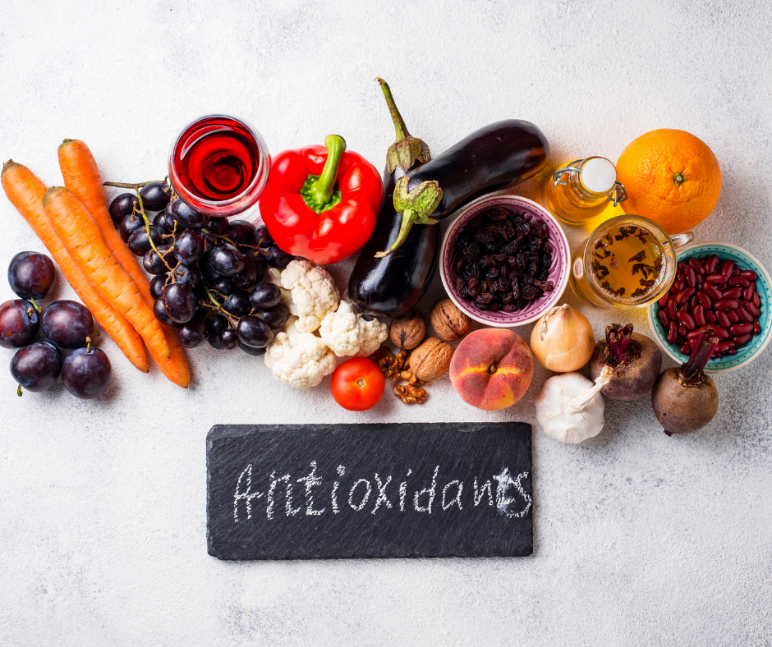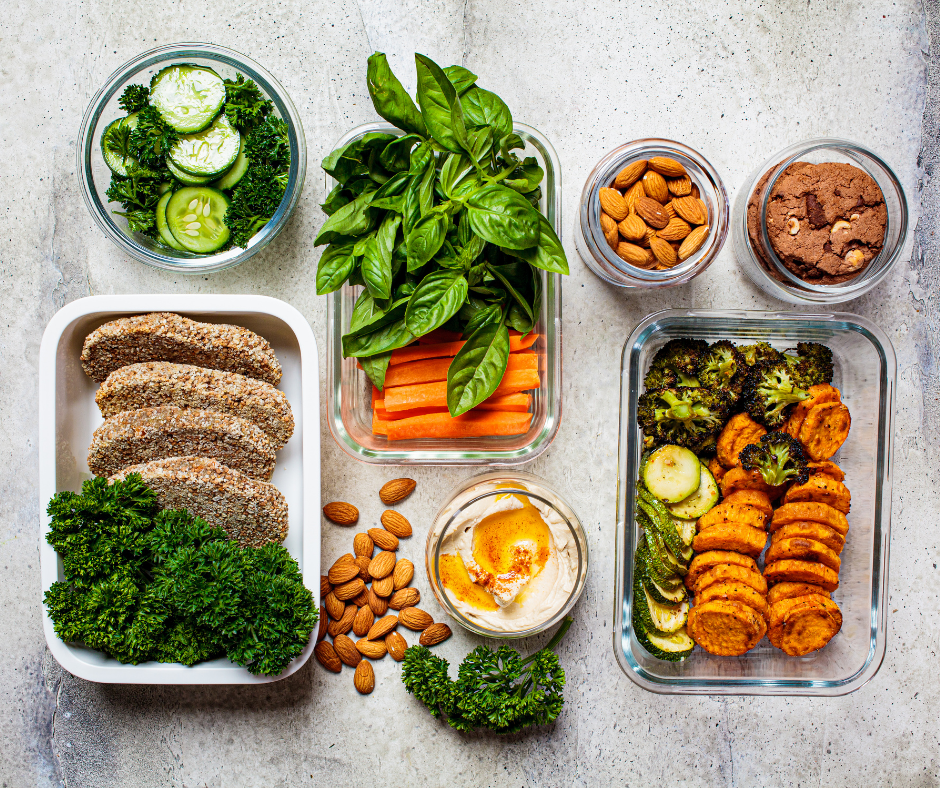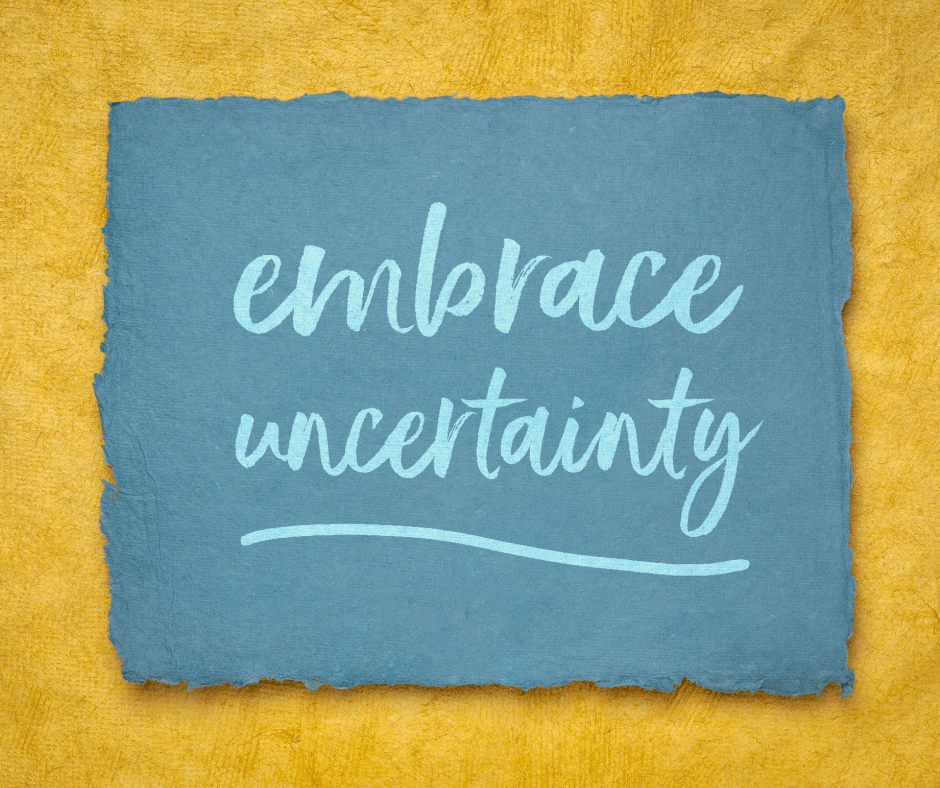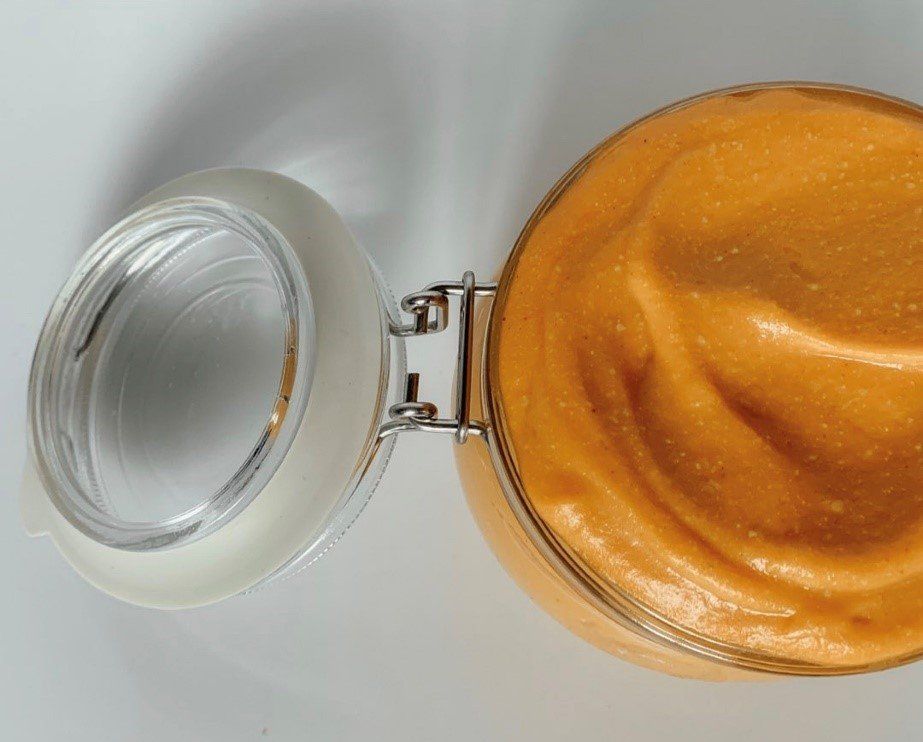555-555-5555
mymail@mailservice.com
5 Benefits of a Plant-Based Diet for Cancer Risk Reduction
What would you do if you were 26 and discovered that you had a radically increased risk of getting cancer in your life? You'd probably be on google, like I was, looking for anything that was in your control to reduce your risk! Seven years ago, when I was 26, I found out that I carried a genetic mutation called BRCA 1 (yup, the one Angelina Jolie has) that increased my risk of breast cancer by up to 87% and ovarian cancer risk by up to 50 to 60%. Even though my doctors told me that there was nothing I could do, I continued to look for ways to empower myself. Luckily, one of my late-night Google searches led me to Dr. Michael Greger and his book "How Not To Die". And what I learned about nutrition was mind-blowing and shocking at the same time. Going plant-based for cancer risk reduction was one of the ways I could regain control in my life, and the evidence proved it!
In this post, I'll share with you the five benefits of plant-based eating for cancer risk reduction. Just remember when it comes to lifestyle habits try to embrace an abundance mindset and avoid all or none thinking! If you've been struggling to get more plants on your plate or have questions about plant-based nutrition and how it can help in cancer risk reduction, read on!
Plant based diets are high in antioxidants which can help to fight cancer cells
The American Institute for Cancer Research (AICR) recommends a plant-rich diet to reduce your risk of developing many types of cancer, including colorectal, esophageal, stomach and other cancers.
One of the best things about plant-based eating is that it's high in antioxidants. Antioxidants scavenge harmful toxins and byproducts, like free radicals, that can damage DNA - leading to the formation of cancer cells. Plant foods contain tons of antioxidants, while animal products don't have any.

Have you ever heard of the phrase, "Eat the Rainbow"? The different colors of fruits and vegetables indicate that they contain different antioxidants, which can work together to provide synergistic effects. Examples of antioxidants found in plant foods include carotenoids (orange fruits & veggies), flavonoids and polyphenols. So, the more variety of colors you eat, the more cancer fighting antioxidant & phytochemical powers you are getting!
HOT TIP: Eat the skin of plants (at least those that are edible) because that is where most of the antioxidants are concentrated!
A plant-based diet is low in fat and calories, which can help you maintain a healthy weight and reduce your risk of cancer
Plant-based diets are low in saturated fat and high in fiber, plant protein, vitamins, and minerals. Research shows that being overweight is linked to 12 different kinds of cancers. A plant-based diet can help you maintain a healthy weight and reduce your cancer risk.
While plant-based diets are associated with a lower risk of cancer, not all plant-based foods have the same health benefits. Plant-based eaters should focus on eating more fruits and vegetables, legumes like beans and lentils, whole grains such as quinoa or brown rice, healthy fats from nuts and seeds. Make sure you don't get fooled by all the marketing for plant-based and vegan products touting them being healthy foods. Heavily processed plant based, and vegan foods are equally as bad for your health as all other processed food.
Animal products contain carcinogens that can increase your risk of cancer
Some animal products contain carcinogens - substances that increase the risk of cancer. Meat, in particular, contains a high level of heterocyclic amines (HCAs) and polycyclic aromatic hydrocarbons (PAHs), which are
cancer-causing compounds formed when meat is cooked at a high temperature. These carcinogens can damage DNA, leading to cancer cells.
According to the WHO, highly processed meats such as bacon and sausage are class 1 carcinogens - which means they are known to be carcinogenic to humans.

According to the AICR/WCRF, both red and processed meat are linked to colorectal cancer. But that's not the only cancer. Eating about 20 grams of processed meat each day—less than half the size of a conventional hot dog—raised breast cancer risk by 21 percent, according to a study of almost 200,000 women.
Simply put, eating processed animal products increases your risk of cancer. Plant-based foods do not contain these carcinogens, which is another reason plant-based eating is so beneficial for cancer risk reduction.
Plant based diets are high in fiber, which helps to keep your digestive system healthy and reduces the risk of colon cancer.
What is Fiber anyway?
Fiber is a type of carbohydrate found in plant foods that the body cannot digest. There are two types of fiber: soluble and insoluble. Soluble fiber dissolves in water, while insoluble fiber does not.
Insoluble fiber helps to move food through your digestive system quickly and prevents constipation. It also helps to keep your bowel healthy by decreasing the risk of colorectal cancer. Soluble fiber can lower your cholesterol levels, regulate blood sugar and insulin levels, and promote a healthy gut microbiome.
A plant-based diet is high in both soluble and insoluble fiber, which provides many health benefits beyond reducing your risk of cancer.
The AICR recommends eating at least 30g of fiber daily from whole plant-based foods. You can do this by eating a minimum of 3.5-5 cups of fruits & vegetables everyday while also incorporating a variety of whole grains into your diet. Remember animal food do not contain any fiber!
Plant based diets are easy to follow and provide a variety of health benefits beyond reducing your risk of cancer
Plant-based eaters tend to have lower levels of inflammation in their bodies, which reduces their risk for chronic disease including cancer.

Plant-based eaters are generally more active, and plant-based diets have been shown to help control insulin levels in the body which can help prevent diabetes. Diabetes is linked with an increased risk of cancer, so controlling your blood sugar through healthy diet and exercise may reduce your overall cancer risk.
A plant-based diet can improve your gut health and reduce inflammation. Your gut health is incredibly important for overall health, including reducing your risk of cancer. The bacteria in your gut play a role in everything from digestion to immunity to mental health.
The role of plant-based diets in preventing and managing chronic diseases such as heart disease, diabetes, high blood pressure and other conditions has been well studied. The evidence to support a plant-based diet for reducing the risk of cancer is still developing, but plant-based eaters do tend to enjoy better health overall.
Conclusion
So, if you’re looking for a way of eating that can help reduce your risk of cancer, as well as provide other health benefits, a plant-powered diet is the way to go. Remember, a plant-based lifestyle is one that emphasizes plant foods such as fruits and vegetables, whole grains, legumes and nuts. You don't have to go completely plant-based to enjoy the health benefits plant foods offer. Even adding a few more plant-based meals each week can improve your health in ways you may not expect. And it’s not as hard as you might think!
To get started, download my free plant powered toolkit, which includes the 10 key principles you need to know to get more plants on your plate! With this guide, you’ll be able to make the transition easily and enjoy all the benefits that come with eating more plants.
If you like this post, please share it with your friends and across your social networks!










